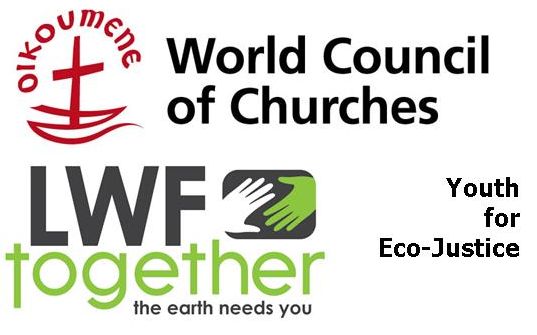Name: Kristi Holmberg
Age: 21
Function: Undergraduate Student at Luther College, Decorah, IA, United States
Country of Origin: United States of America
Church of Origin: Evangelical Covenant Church of America/Associate Member of Evangelical Lutheran Church of America (ELCA)
What is really important for your life?
My longstanding hope is to learn how to love. According to one of my favorite authors, Shane Claiborne, “this love is not sentimental, but heart-wrenching; the most difficult and most beautiful thing in the world.” Cultivating community and forming deep and meaningful relationships is of utmost importance to me. But this love also drives me to care deeply about causes I am passionate about: socio-economic justice and poverty, immigration and refugees, interfaith dialogue and engagement, and now, sustainability and climate change. I follow Jesus’ example for compassionate and redemptive engagement in the world by actively entering into the brokenness and working to redeem it, though often in small ways. Learning is also central to this call as I continue my studies in religion, sociology, and writing and risk failure in growing and life-changing experiences.
What are your wishes for the negotiations on Climate Change in Durban?
I have read articles recently that have been doubtful about the effectiveness of the upcoming negotiations in Durban. Climate change is a heavy, daunting issue. Convention after convention, the issue can feel gridlocked. I am also aware that not everyone in the U.S. knows what the UNFCCC is nor the impact it could and should have. I am easily frustrated by this reality, but I have learned from my own personal path despair is downspiraling and dehabilitating.
If we are to continue to address climate change and collaborate on a global scale, I believe we must choose hope, not despair. I want to see this hope manifested in effective, collaborative international policies at the UN negotiations and in international leaders who take responsibility for their nations’ actions. I hope our nations’ leaders would seek common good and common justice and not be swayed by vested interests or economic gains. I hope to see negotiations that address the disproportionate impact climate change has on the poor. I pray the youthful, passionate, presence of the Church with the Youth for Eco-Justice programme will provide the energy, innovation, and spirit-filled presence for fruitful dialogue among diverse groups of people. While its tempting to be pessimistic and doubtful, I have great expectations for the UNFCCC negotiations because of this hope.
What would you like to do so that your church/country becomes more environmentally just?
With the upcoming presidential 2012 election in the United States, it is crucial for the candidates to publicly acknowledge and address climate change, and take responsbility for the United States’ contribution to the problem of climate change. Unfortunately, many people in the U.S. are ignorant or apathetic about climate change because many of us are insulated from the consequences of our actions.
The most important thing I can do right now is find a voice to preach the news of climate change so that people will be compelled to care, rather than be paralyzed by despair. I am eager to show a vision for sustainability through sharing my own story and struggles, not by burdening people with a long list of things to do. I would also like to mobilize youth, in particular, to vote and participate actively in our democracy before, during, and beyond the elections with the issue of climate change.
I see the relationship between socio-economic justice and environmental justice as the entry-point for Christians, in particular, to respond to climate change. I have witnessed the church become co-opted by consumerism and individualism that pervades my culture. But I do not think the Gospel was proclaimed to make people complacent and comfortable. I think the message of the Gospel is counter-cultural: calling us to follow Jesus and care for the poor and oppressed. As sea levels rise, storm cells intensify, and droughts worsen, climate change will continue to have a disproportionate impact on the poor. My goal is to educate faith communities following the Youth for Eco-Justice training, help people see the connection between socio-economic justice and eco-justice, and ask them to envision: What does it look like to bring the kingdom of God to earth here and now? ? I pray faith communities will mobilize people in my country by cultivating personal transformation and organizing for social and political change on the grassroots level. I pray the leaders of the church will cultivate its prophetic voice in response to this issue and continue to discern the right questions (instead of getting stuck on an answer from the past): What is the church? How should it respond to our contemporary contexts? What does it mean to follow Jesus today?


